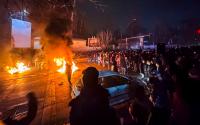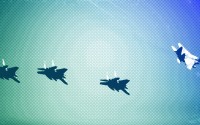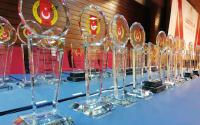More than 3,000 British troops will join the Canadians in southern Afghanistan over the coming months. It is the latest move in Nato's commitment to deploy troops throughout Afghanistan in what is widely regarded as a hugely risky test for the alliance.
The build-up of Nato forces in the south of the country is the alliance's "biggest operational, and perhaps strategic, challenge in years, if not decades", Major General Michel Gauthier said in a telephone interview with the Guardian.
He will be based in Ottawa overseeing more than 2,000 Canadian troops in Kandahar, which will come under the overall leadership of Nato and a British commander, General Sir David Richards, this summer.
The government has said the deployment of the 3,000-plus strong British brigade, based in Helmand province, next to Kandahar, will last for three years. It is not clear what happens then, but Gen Gauthier said Nato troops would still be needed.
Gen Gauthier commanded the first UN forces deployed in the Balkans in 1992. He said no one had expected thousands of UN and Nato troops to be there 14 years later.
Asked if Nato troops would be in Afghanistan, a country he described as having "huge problems", for decades, he replied: "For years and years."
He described southern Afghanistan as an "unpermissive environment", but said Canadian and British troops were well trained.
Nine Canadians have been killed in Afghanistan since 2002, including a diplomat killed in a suicide attack. Some 214 American service personnel have been killed since the US invaded the country in 2001.
Attacks have increased in recent months, partly as a result of changing tactics by Taliban and foreign fighters. Yesterday a bomb exploded near a Nato peacekeeping convoy in northern Afghanistan, killing one Afghan civilian and wounding 12 people, including a German peacekeeper, officials told Associated Press. The bomb, on a bicycle, went off at about 1.30pm near a bazaar in the northern city of Kunduz, said the provincial police chief.
But Gen Gauthier said there would be fewer suicide attacks. They were "counter-cultural" to Afghans, he said, the vast majority of whom wanted peace and a better life. "What is clear," he said, " [is that] narcotics, criminality, terrorism, insurgency, are all linked."
Unlike Britain, Canada is not involved in the eradication of the opium poppy trade. Britain and its European allies say peacekeeping and nation-building missions are distinct from the US-led operations against terrorists and al-Qaida.
http://www.guardian.co.uk/afghanistan/story/0,,1715962,00.html






